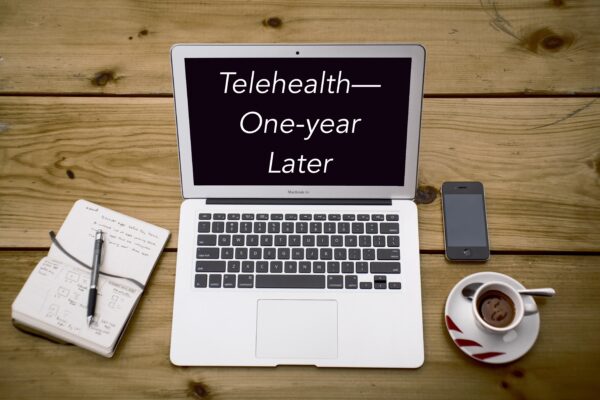 Psychologists help people cope with change in ways that enlarge and nourish them. Perhaps the most important thing we do is witness our clients’ stories by the deceptively simple act of listening and observing. But that simple act became complicated when the COVID-19 pandemic thrust us overnight into the new territory of telemedicine.
Psychologists help people cope with change in ways that enlarge and nourish them. Perhaps the most important thing we do is witness our clients’ stories by the deceptively simple act of listening and observing. But that simple act became complicated when the COVID-19 pandemic thrust us overnight into the new territory of telemedicine.
The pandemic and quarantine were accompanied last year by unimaginable tectonic shifts in almost every aspect of life. Police violence, civil protests, and political unrest made us rethink our relationships with some of the most fundamental aspects of being human. We went through it all alongside our clients, yet our code of ethics demands keeping such fears to ourselves and keeping self-disclosure to a minimum.
For therapists and clients alike, teletherapy presented an unexpected and steep learning curve. Many patients felt awkward having painful or intimate discussions while being physically separated, sometimes while dealing with technological issues. Behind the scenes, therapists had to master new technology and change our billing and documentation procedures while ensuring the new system was secure and HIPAA-compliant.
It could be awkward for us too. and I worried about staying attuned to my clients and whether I could still practice deep listening as described by Theodor Reik in his book Listening with the Third Ear.
We are… encouraged to rely on a series of most delicate communications… collecting all our impressions; to extend our feelers, to seize the secret messages that go from one unconscious to another. . . . The student often analyzes the material without considering that it is so much richer, subtler, finer than what can be caught in the net of conscious observation. The small fish that escapes through the mesh is often the most precious.
Nevertheless, we figured it out. Therapists and clients found that we could make deep contact even through a screen once the technology got sorted out. We learned new ways of observing and gaining information, and I was impressed to see my clients’ resilience in using telehealth apps from their cars, in a dark garage, or from a closet. We found ways to see the whole person without needing to see their whole body by listening with the fullness of all our senses.
In my practice, I’ve also observed how the pandemic has allowed more time for hobbies, family life, and other pursuits. Seeing opportunities for growth in the midst of difficulty is an insight with wide application beyond the pandemic. It’s helped me grow in my job as a psychologist; in the words of the Shaker hymn, I’ve found that to “turn, turn will be our delight, / Till by turning, turning we come ’round right.”
That said, it’s important to acknowledge that the terrifying awareness of our tremendous vulnerability and life’s fragility has severely tested our defenses. In our communities and the world, the grief we’ve experienced and witnessed differs from anything we’ve seen before. It’s what Pauline Boss calls “ambiguous loss”—unresolved loss without closure and no end in sight.
We must carry this ambiguous loss for our clients and ourselves, knowing that the way ahead is still dark. Fortunately, our training as psychologists provides us with the clinical foundation to continue to practice in empathic and ethical ways even as we traversed the chthonic underworld along with our clients. Our ability to stay with the depths of despair alongside the knowledge that we can still hope and dream is the stuff of our work and our personal lives. As the poet Theodore Roethke wrote, “In a dark time, the eye begins to see.”




